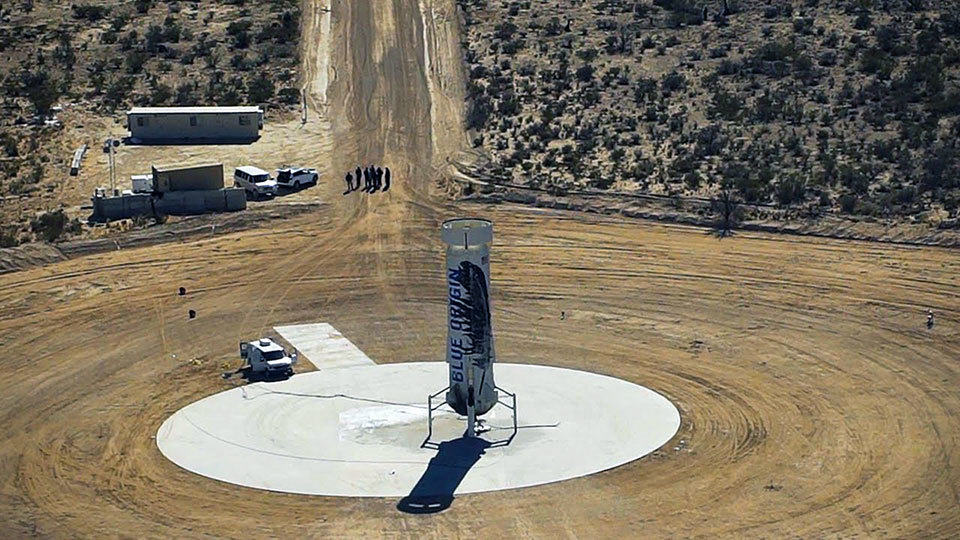Commercial aircrafts don’t get dumped after traveling to somewhere and so, why should space-going rocket be any different? Yes. We are talking about reusable rockets that will (hopefully), in near future, make suborbital space flight and space cargo delivery more cost effective. The idea is being explored by both SpaceX and Blue Origin. While SpaceX may appear to be headlining the development, it is Blue Origin that gets to swipe the ‘first’ title; this time in relaunching a reusable rocket. The company’s suborbital rocket New Shepard did a successful launch and land last November and it has recently launched the same rocket to 63 miles above the Earth’s surface, before returning safely back to the company’s facility in Texas.
This feat made Blue Origin’s New Shepard the first commercial vertical rocket to make it to space the second time and a major milestone in reusable rockets that could one day make cost of space travel more realistically affordable. However, I doubt we see that ‘affordability’ in my lifetime, but that does not detract it from the fact that it is a major milestone that could have a rippling effect on our relationship with space. The milestone was made even more significant as the relaunch was made in a considerably short space of time (i.e November and January). So, I guess it is one step closer to Blue Origin’s vision of getting millions of people living and working in space.
However, transportation and the associated costs are just two of the many hurdles mankind have to clear before space flights can be an everyday thing, so to speak. There are other elements to consider too, including how humans will cope with reduced gravitational force and the long term effects it has on our bone density et cetera. Anywho, we shan’t rant about it and let the pros do what they do best. If you are craving for more in depth reporting, you may want to hit up The Verge for some extended readings. But before you go, you can catch the major milestone unfolds in the video, aptly entitled “Launch. Land. Repeat.”, below.
via The Verge


